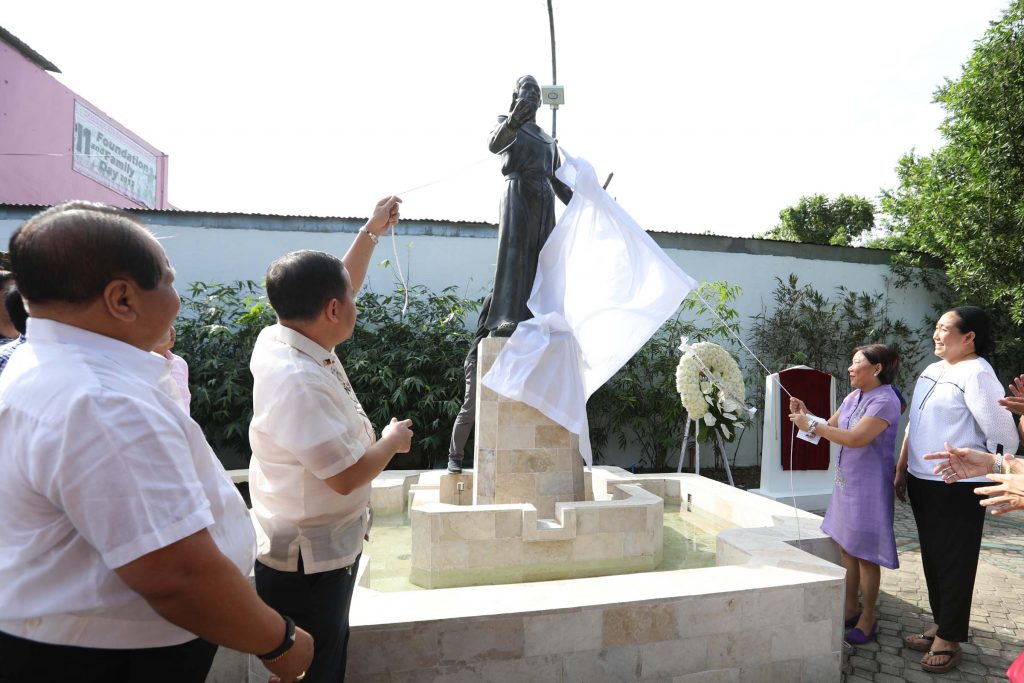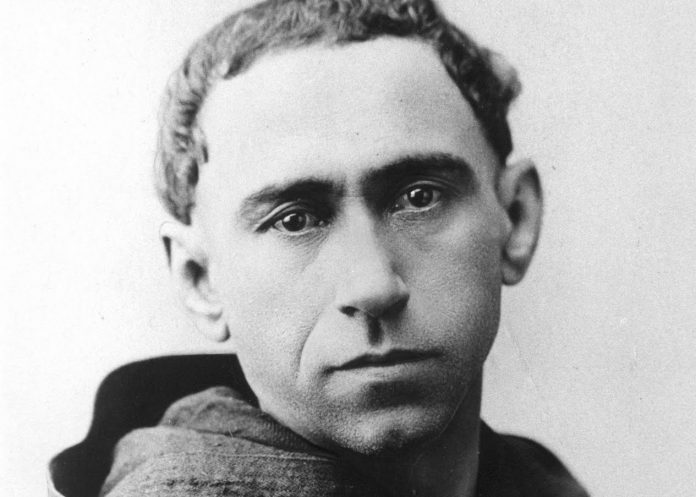Why do we venerate saints and martyrs in the Catholic Church when they’re just human beings like us? Should we not focus only on Christ? Should we not regard him as our sole intercessor to the Father? These are questions that I often hear from some of our fellow Christians from other confessions and denominations.
This is what I usually say in answer to them: There is nothing that we venerate in our saints and martyrs in the Catholic Church except Christ himself whose way of life has been luminously mirrored or reflected by their holy and heroic lives.
For us Catholic Christians, Christ is not confined to the Jesus who lived more than two thousand years years ago now. Don’t we find ourselves sometimes singing in that Charismatic song, “Christ’s not dead, he’s alive!”
He is not dead; he is alive! He continues to live and move and have his being in us his disciples, in every member of his body, the Church. As St. Paul says, “The Church is the body of Christ.” That is why I often say, “We are called, not just to be Christians, but TO BE CHRIST.” Meaning, to be living representatives of Christ in the world in the here and now. Christ’s work of redemption in the world is not finished yet; it is a work in progress.
And so, with regard to St. Ezekiel Moreno, whose memorial we celebrate today, what we really want to remember is—how did St. Ezekiel Moreno live his life and mission as a living representation of Christ? In three ways: firstly, through his way of shepherding; secondly, his heart for the poor; and thirdly in the sufferings that he had to endure.
FIRST, through his manner of shepherding as pastor, he made people experience the shepherding of Christ himself in the communities that he had served—first, in the Philippines, and later, in Colombia.
Although he was a Spaniard by birth, he spent only 17 years in his own country. He lived most of his life in mission territories in the Philippines (for 20 years), and in Colombia (for 18 years). It was here in our country where he completed his formation for the priesthood, got ordained at the age of 23, and started out his ministry as an Augustinian Recollect.
In more ways than one, we can practically regard him as the third Filipino saint because he spent the greater part of his life in the Philippines, immersed in our culture and spoke Tagalog and Cebuano fluently.
He spent the third part of his life as a missionary bishop in Colombia, again, away from his native land. He really took very seriously the invitation of Christ for him to leave everything behind and come follow in his footsteps.
St. Paul was right in summing up what he understood about discipleship by saying, “My life is no longer mine; it belong to Christ who lives in me. I live by faith in the Son of God who loved me and has given up his life for me. ” Therefore, Christian life is a continuation of the life of Christ in every disciple who loves with the love of Christ and gives up his life for his friends. St. Ezekiel Moreno was one such disciple.
In our first reading, the prophet is denouncing the false shepherds who have no real compassion for the flock. They use power for their own self-interest and not for the interest of the sheep. The prophet therefore prophesies, “The time is coming when I myself will shepherd my people Israel. “ This prophecy is fulfilled in Jesus Christ, our Good Shepherd, and in all who are taking part in Christ’s ministry of shepherding the Church.

SECONDLY, Like Christ, St. Ezekiel Moreno had a heart for the poor, the marginalized, and those who are treated as non-etities in society. This coincides well with the main point of the Gospel Parable today about the vineyard owner and his preferential treatment of the workers who were hired last.
According to the parable, the master of the vineyard gave the same amount, the equivalent of a full day’s wage to those who had been hired last and worked only for an hour. Those who had been hired first reacted vehemently to this and said, “Why did you pay them a full day’s wage like us when they worked only for one hour? Isn’t that unfair? Shouldn’t we have been paid more?”
But the master replied, “Why do you call me unfair if you had agreed to a full day’s wage for a whole day of labor?” He tried to explain that, yes, indeed they were unable to work for a whole day—not because they were lazy, but because nobody would hire them. Look, they waited up to the last hour, hoping against hope that they could still be hired even for just an hour’s labor. They did not give up.
This is no different from the common experiences of job applicants among the poor in this day and age. Many of them never get hired, not because they cannot do the job, but because the employers always prefer those with higher education and qualifications, even for a basic laborer’s job.
Not fair? Or is it not society rather, that is unfair? We have no right to judge the poor just because we happen to be better off or more comfortable. It is not always true, after all, that some people are better off because they work harder, and that many are poor because they are lazy. How many people are deprived of equal opportunity because they have no capital, no education, no experience, no connections, qualifications?
Suppose you have three kids who want to watch a basketball game over a solid fence: one is tall, another is medium in height, and a third one is small; and only the tall one can watch the game comfortably? Suppose they find three wooden boxes that they can step on. What do you think they should do with the boxes? What would be fair? That, in the interest of fairness, each one should get one box each?
No. Why not? Because the tall one has no need of it. So, in the interest of fairness, what should each one get? None for the tall one, one for the medium in height and two for the small kid. Then you can talk about being fair. You see, equality and equity are two different things. The distribution can be unequal but equitable.
That is the point why Mary sings in her Magnificat that God will cast down the mighty from their thrones and lift up the lowly. Not to reverse their situations. Not to make the slaves of today into the tyrants of tomorrow, but rather to put them on equal footing, to seat them next to each other, as brothers and sisters.
THIRDLY, St Ezekiel Moreno is a Patron of those with Cancer because he himself valiantly suffered and died of cancer. In that sense, St. Ezekiel Moreno followed the way of Christ in which the Savior is not a superman but one who also suffers and dies, himself. He was not even spared of a criminal’s death. Remember how the soldiers jeered at Jesus while he was hanging on the cross? How they said, “You saved others, why don’t you save yourself?”
Like Jesus, he did not follow the easy path. From the moment he followed Jesus, he had accepted the paradox, “The one who saves his life loses it; while the one who loses his life for my sake and for the Gospel, will find it.”
Although St. Ezekiel Moreno did not die a martyr’s death, he too had to endure unspeakable sufferings during the last years of his life as a bishop in Colombia, in the middle of a civil war. The pain that he had to endure from his cancer up to the moment of his death was unimaginable.
Like Saint Paul, he willingly embraced his sufferings as a participation in the sufferings of Christ.
So, whom are we venerating? Not Ezekiel Moreno, but Christ who became truly alive in him.
This is the homily of Bishop Pablo Virgilio David of Kalookan for the Feast of San Ezekiel Moreno, Aug 19, 2020.









